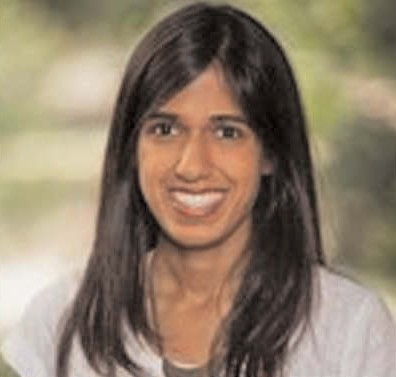NEW YORK (TIP): An Indian-American Harvard University graduate has come up with a new series of seven dolls that represent common girls with ethnic diversity and celebrate them for their brains, talents and leadership.
Neha Chauhan Woodward, 29, has given each of the seven dolls unique personalities, which girls can relate to.
The doll collection created by her startup toy company Willowbrook Girls and story series is based on the similarly ambitious childhood friends she grew up with on Willowbrook Road.
“The toys I played with had such an impact on me, but they weren’t a great reflection of me or my friends, who were so smart and so diverse in their interests and backgrounds. I knew we needed to do better,” said Ms Neha, who now lives in Manhattan.
Ms Neha said the idea came to her while she was a Stanford MBA student – a degree she pursued after studying economics at Harvard and then working as an investment banking analyst at JPMorgan.
“Next door to the coffee shop I studied in was a very popular doll store,” she said, declining to name the shop.
“The emphasis on appearances, with these doll hair salons and doll tea parties that parents were expected to bring their kids to really upset me. If anything, this company had a huge opportunity to empower girls,” a local newspaper quoted her saying.
After years of working for successful e-commerce sites like Blue Apron and Diapers.com, Ms Neha turned her tech marketing experience into a concept for a doll company that would more accurately entertain the modern girl: one who will lead businesses, make medical breakthroughs, build apps and reform policies.
“You have to see something to know that you can be it.” When fully funded, each doll will have a corresponding book about their endeavors. The first one is about the Willowbrook girls starting a business at their school. The stories will give further depth to the characters, Ms Neha said.
Growing up as an Indian-American, Ms Neha also wanted to make sure the dolls appeared diverse.
“It was something lacking in the toys she grew up with, and hasn’t gone unnoticed by young people of color,” she said.
“A lot of girls I spoke to said that they wanted dolls that looked like them,” she said. “They wanted characters that were relatable. You have to see something to know that you can be it.”
Though Willowbrook Girls dolls aren’t for sale yet, Ms Neha is nearing the end of her ‘Kickstarter Campaign’ to raise money for the first doll, Cara, a half-Latina with brown eyes and long blond hair. After that, Cara will be sold online.
Ms Neha hopes that sales from that and other sources will enable her to release more of the dolls.
“I’ve always had a very entrepreneurial spirit, and this was a mission that I cared about,” she said. “This was the right time to do it, and it’s something that I really wanted to see happen.”
Other dolls include Bailey, who wants to be a math teacher and dreams of education reform, and Maya, who wants to be a neuroscientist.
